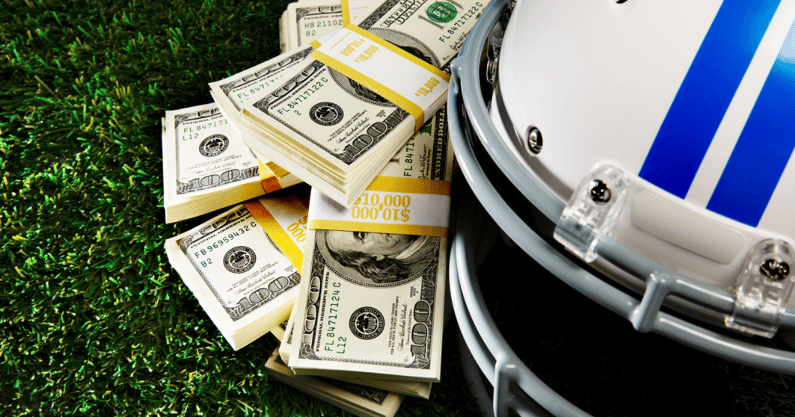Illinois joins list of states allowing NIL collectives to work with coaches

Illinois’ amended NIL law removing the prohibition of schools from directly or indirectly arranging for a third party to provide compensation to a student-athlete has been signed by Gov. J.B. Pritzker.
The bill is still officially listed on the Illinois General Assembly’s website as “sent to the governor” for action. However, Braly Keller, a NIL specialist for Opendorse, and sports attorney Darren Heitner shared news of the amended bill’s signing on social media. Dan Greene, an associate attorney at Newman & Lickstein in Syracuse, N.Y., further confirmed the law’s signing.
Illinois passed its original NIL law on June 29, 2021 – right before the NCAA announced its interim Name, Image and Likeness guidelines. It’s viewed by many experts, including Michael H. LeRoy, as the most restrictive NIL law in the country. LeRoy found Illinois had five times the number of pay restrictions imposed by California.
While there has been momentum in other parts of the country to loosen NIL restrictions, legal experts were unsure whether or not Pritzker would sign the amended legislation.
More states revamping NIL laws
Other states – especially in the Southeast recruiting footprint – have amended NIL laws that empower collectives’ to have a significant impact on high school recruiting.
Recently, Tennessee took center stage in the nationwide discussion about NIL. Mississippi also recently tweaked its NIL law. The South Carolina state Senate passed its 2022-2023 budget. Inside the budget, it includes a section that would take its NIL law off the books for the fiscal year.
According to the Louisiana State Legislature, Sen. Patrick Connick authored a bill that would allow schools, their affiliates and boosters to compensate student-athletes for use of their NIL. The proposal moved out of the House Education Committee recently. It is one step closer to Gov. John Bel Edwards’ desk.
Furthermore, Missouri is also on the verge of amending its NIL bill. The amendment would allow schools to have a more active role in NIL activities. The amendment was introduced on the House floor and passed through both chambers. It now waits for Gov. Mike Parson’s signature.
Top 10
- 1New
Field of 64 Projection
Predicting NCAA Baseball Tourney Field
- 2Hot
Joel Klatt
2026 Big Board
- 3
Kalen DeBoer
Reacts to transfer rumor
- 4
Michigan football
Ex-coaches get show-causes
- 5Trending
Bill Belichick
UNC concern over Jordon Hudson
Get the On3 Top 10 to your inbox every morning
By clicking "Subscribe to Newsletter", I agree to On3's Privacy Notice, Terms, and use of my personal information described therein.
State laws make enforcement murky
Coaches and NCAA leaders say NIL disguises “pay-for-play” deals choreographed by collectives. They say groups are using money to persuade recruits before they sign binding letters of intent. Per NCAA rules, boosters are not allowed to pay players directly or be part of the recruiting process.
The NCAA issued guidance two weeks ago aimed at limiting the impact of boosters who are using NIL ventures to lure top high-school recruits and target players in the transfer portal. Many observers say the guidance wasn’t a significant step forward and will only continue the pay-for-play chaos.
What’s significant about these state law changes is that they remove the institutional involvement prohibition. They allow athletic department employees, including coaches and recruiters, to become part of the NIL process.
Additionally, it’s the murky gray area between state laws, contract law, NCAA rules and NCAA enforcement that has turned the nationwide NIL discussion into a confusing one.
“Will any school dare to directly involve itself with deals for athletes not yet enrolled,” Heitner tweeted in response to the Illinois amendment’s passing.